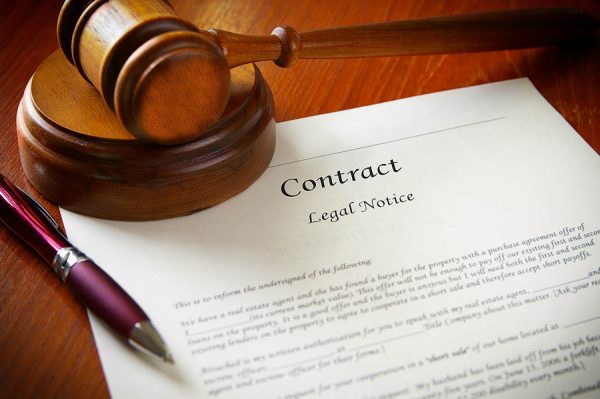Performance refers to the delivery of goods by the seller to the buyer plus payment of the purchase price by the buyer to the seller. The main objective of the contract of sale is to transfer property from the buyer to the seller, and the strongest proof of this is by the delivery of the goods to the buyer.
Read more about The law and you
Here, not only title passes, but possession too. The seller must deliver the goods to the buyer, and the buyer must accept and pay for them in order for the contract of sale to have been fully executed.
This is when we say that there has been a performance of the contract. When the buyer refuses to pay, the seller can refuse to make delivery, and where the seller makes a delivery, pursuant to a contract of sale, the buyer is under the obligation to pay.
Delivery involves not just the transfer of the property but the transfer of possession. The parties to a contract of sale are expected to agree to a time and place of delivery, but in the absence of such agreement, the time is to be a reasonable time and the place is to be the seller’s place of business or residence. Delivery to a carrier for transmission to the buyer is considered delivery to the buyer.
Rights Of An Unpaid Seller
The following includes the summary of the rights of an unpaid seller in relation to the goods:
- A lien on the goods for the price: a lien is a right to retain that which is in one’s possession belonging to another till certain demands of the person in possession are satisfied. A lien arises if: the buyer has not paid the seller or the seller is in possession of the goods or part of them.
- A right of stoppage in transit: the unpaid seller has a right to halt transportation of the goods as they are on their way to the buyer. However, a stoppage by the seller is only valid before the goods enter the possession of the buyer. Any subsequent attempt to stop the goods will amount to liability on the part of the seller, as title in the goods will be deemed to have passed to the buyer. It is important to note that the seller becomes liable to settle the fees of the carrier where the seller stops the goods in transit, thereby interrupting the execution of the contract between the buyer and the carrier. Failure to settle the carrier will result in liability on the part of the seller.
- A limited right of resale.
- A right to withhold delivery.
Remedies For The Seller
- The seller may apply to the court to compel the buyer to pay the agreed price for the goods under the following circumstances:
- Where the property in the goods has passed to the buyer but he does not pay for the goods.
- Where the property in the goods has not passed to the buyer, but the agreed date for payment has passed, and the buyer has not paid.
- An aggrieved seller is to bring an action for damages where the buyer wrongfully neglects or refuses to accept and pay for the goods. The seller may maintain an action against him for damages for non-acceptance. Therefore, the seller’s grievance is not only with the buyer’s refusal to pay but also with the buyer’s refusal to accept the goods, and this would amount to a breach of the contract, for which the seller is entitled to claim damages.
The number of damages to be paid by the buyer will not be the price of the goods that he/she has failed to accept, since the purpose is not to compel the buyer to purchase them.
Sign up to the Connect Nigeria daily newsletter
Rather, the number of damages would be measured by ascertaining the loss which the seller has suffered, such as profit lost from the failure of the contract. The intention is to make sure that the seller does not suffer loss from the buyer’s breach of the contract.
Remedies For The Buyer
Where the seller’s loss can be quantified by calculating the price of the goods, the buyer’s loss is usually more expansive, and the available recourse consists of several options.
In the event of a breach of contract by the seller, the buyer may claim damages, specific performance of the contract, diminution or extinction of the price for the breach of warranty.
Where the seller refuses to deliver the agreed goods to the buyer, the buyer will have a right of action against such a seller for damages (general and/or special) or specific performance.
In the event of a breach of warranty, the buyer may bring an action for diminution or extinction of the price (he/she will not be liable to pay the full price but merely the difference in value.
In the event of a breach of condition, the buyer may reject the goods, but this remedy will be unavailable where the buyer waives the breach of condition or decides to treat it as a breach of warranty, or where the goods are specific and property in them has passed to the buyer.
Conclusion
When people enter into a contract for the sale of goods, the express terms of the parties’ agreement and the Sale of Goods Act (or the Sale of Goods Law in a state) will govern the contract.
The rights and duties of parties to a contract of the sale of goods and their entitlement to remedies are determined by property and possession. Therefore, transfer of possession, transfer of property and delivery of goods are very important concepts under agreements for the sale of goods. It is very important to note whether such transfers or deliveries have been executed under the law and what the effect is.
Featured Image Source: iPleaders Blog
Got a suggestion? Contact us: [email protected]


